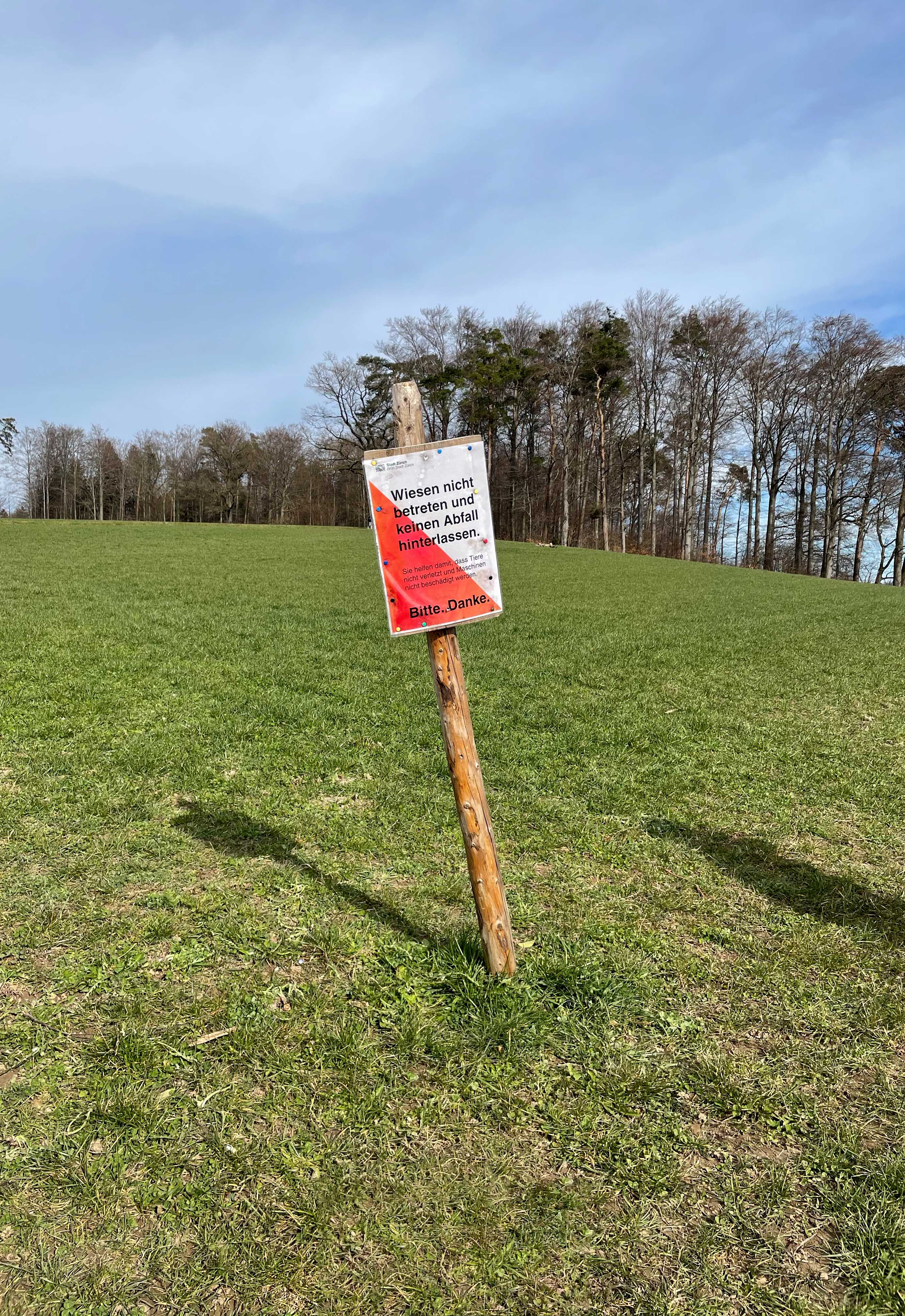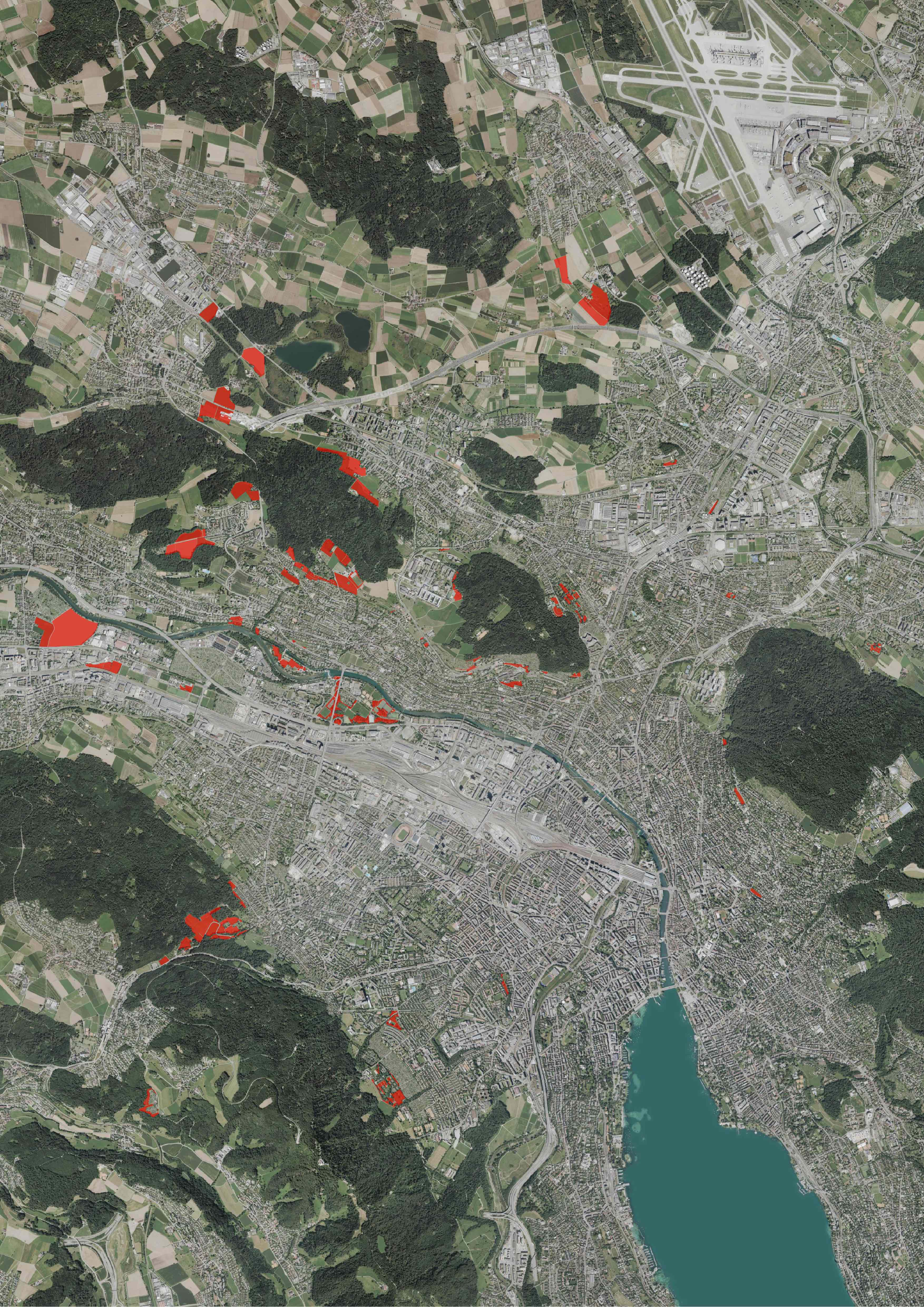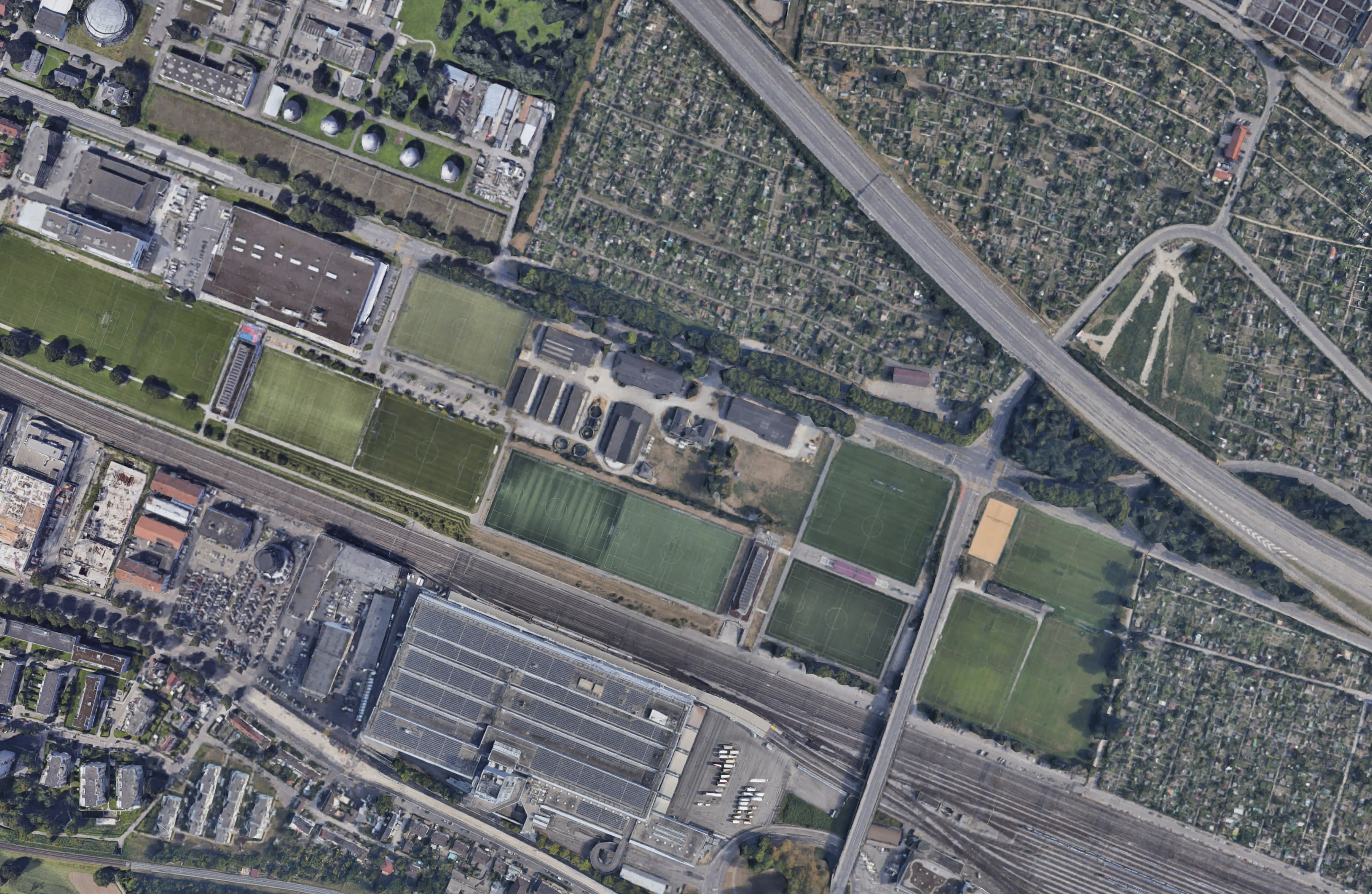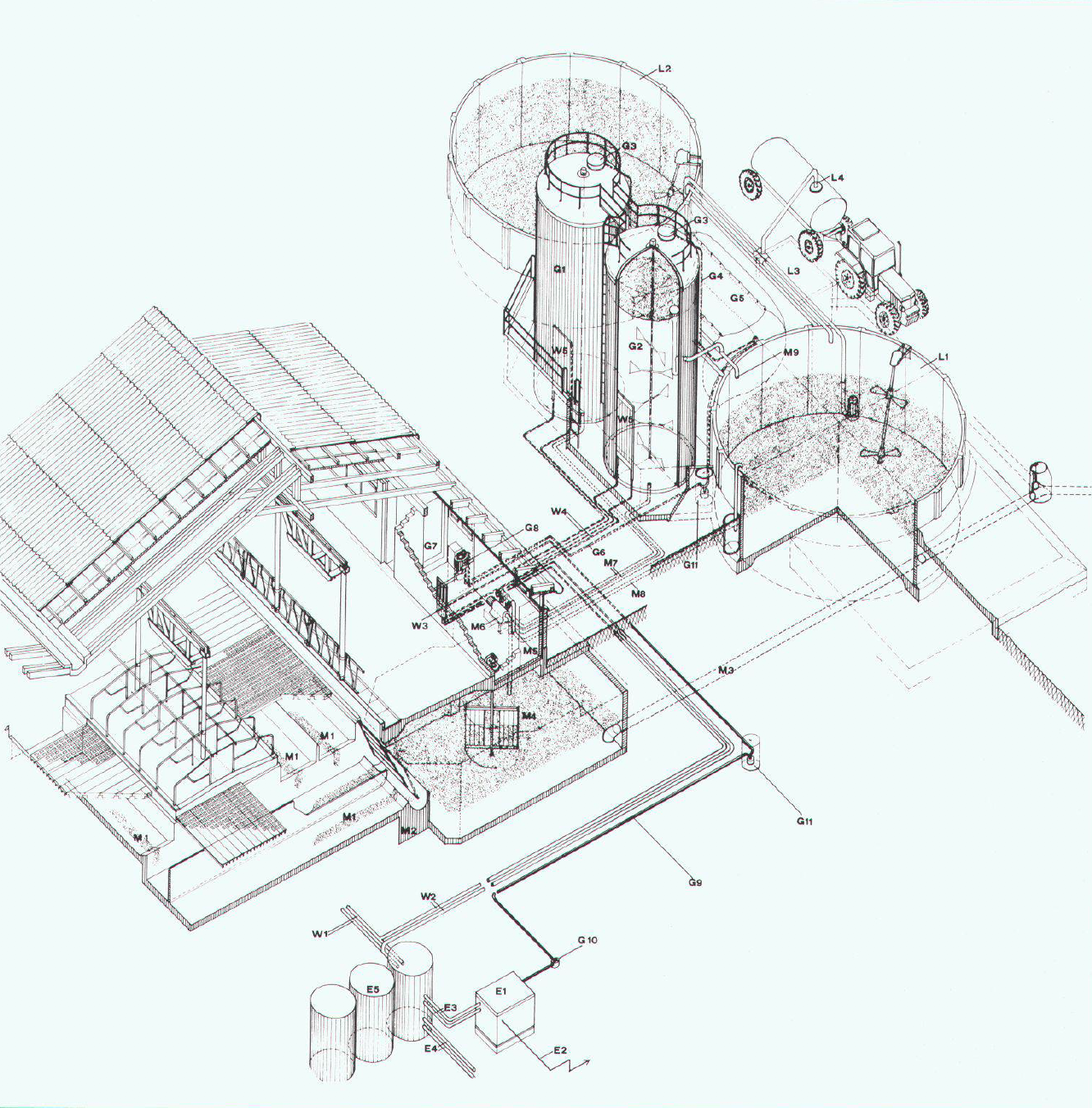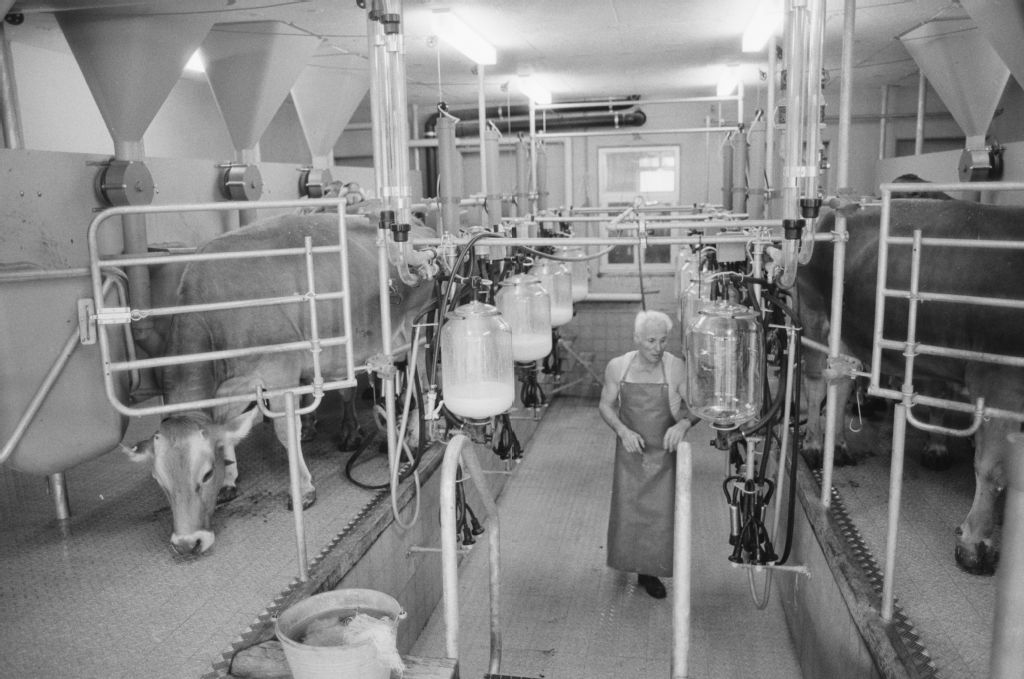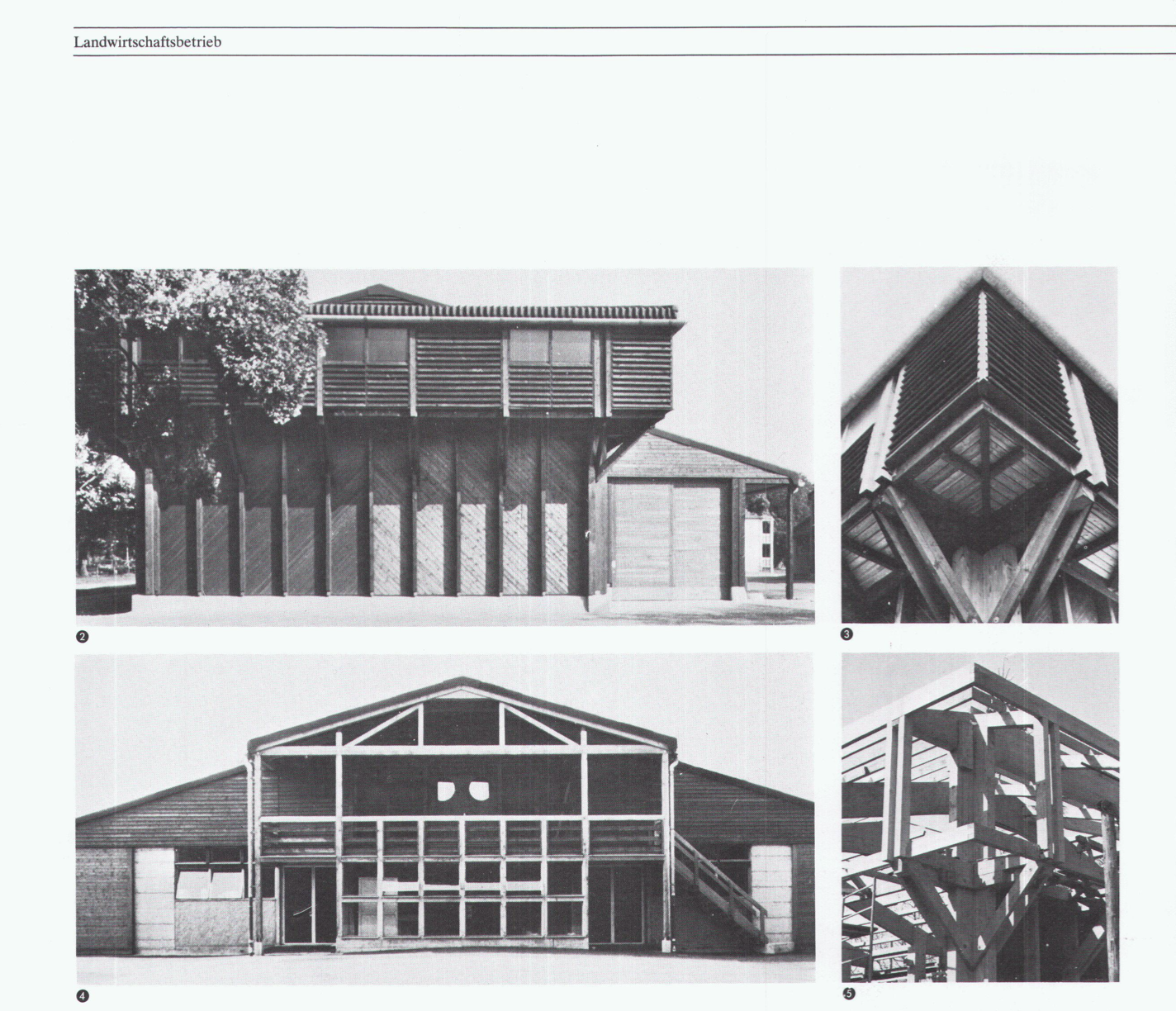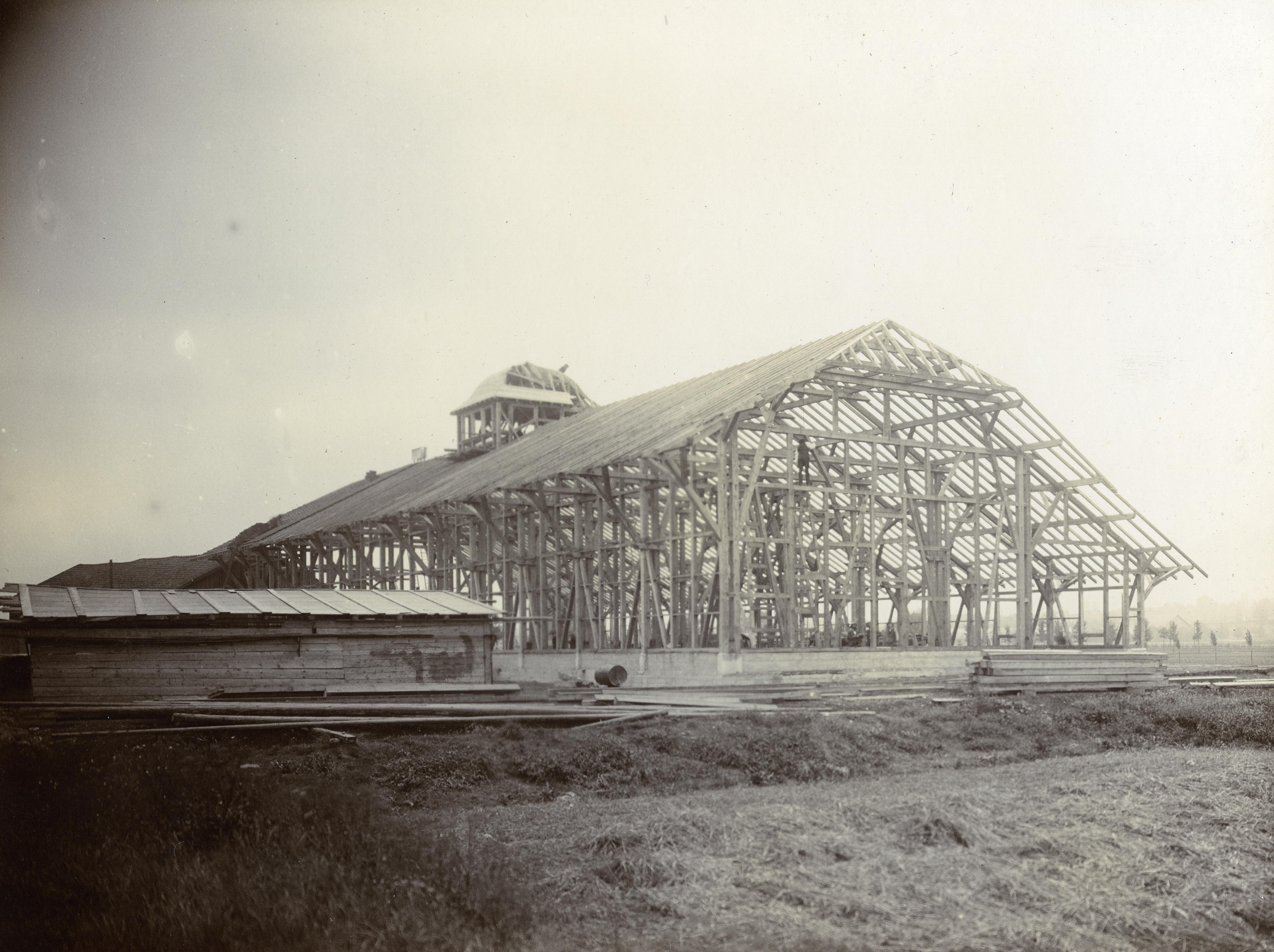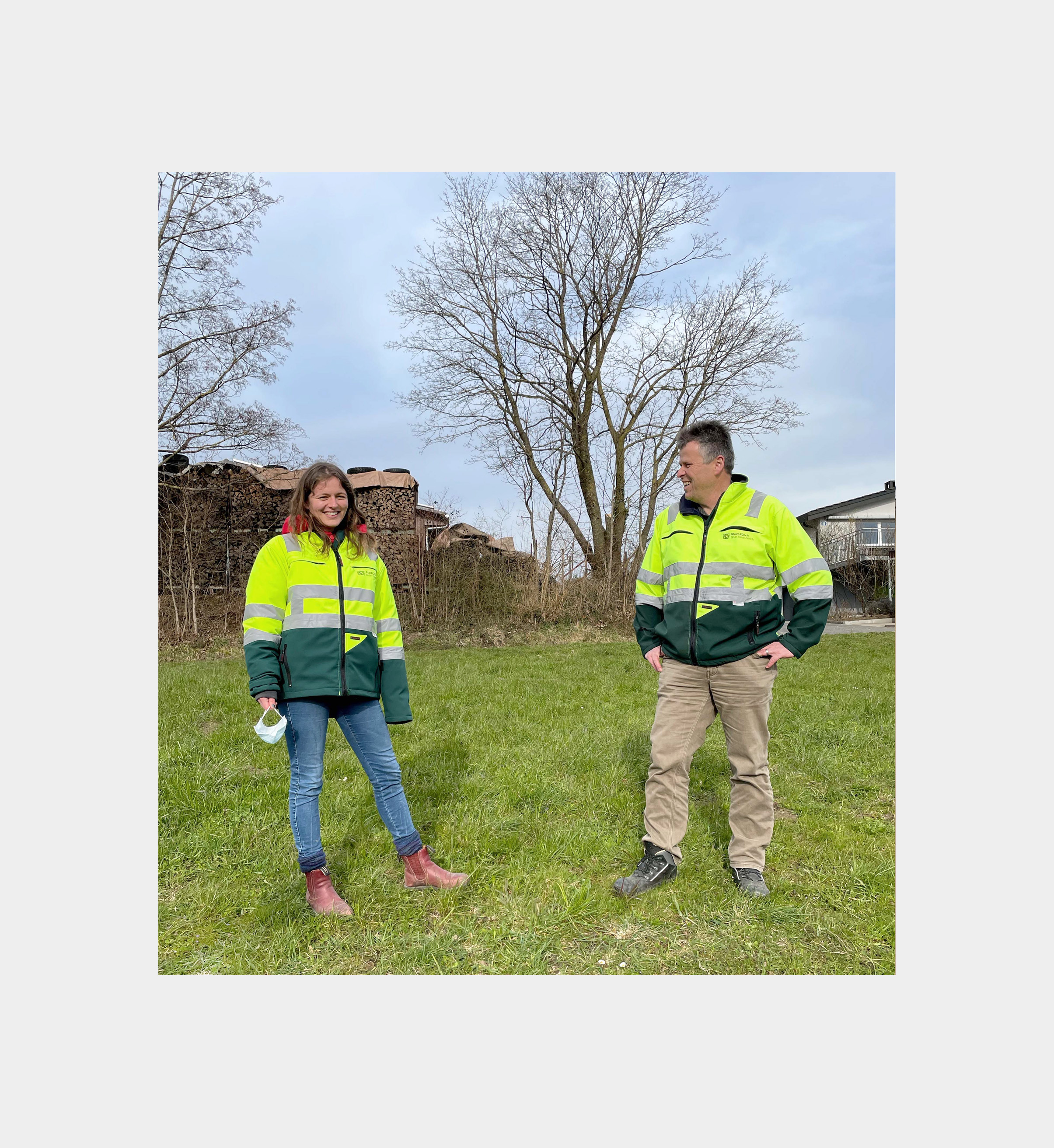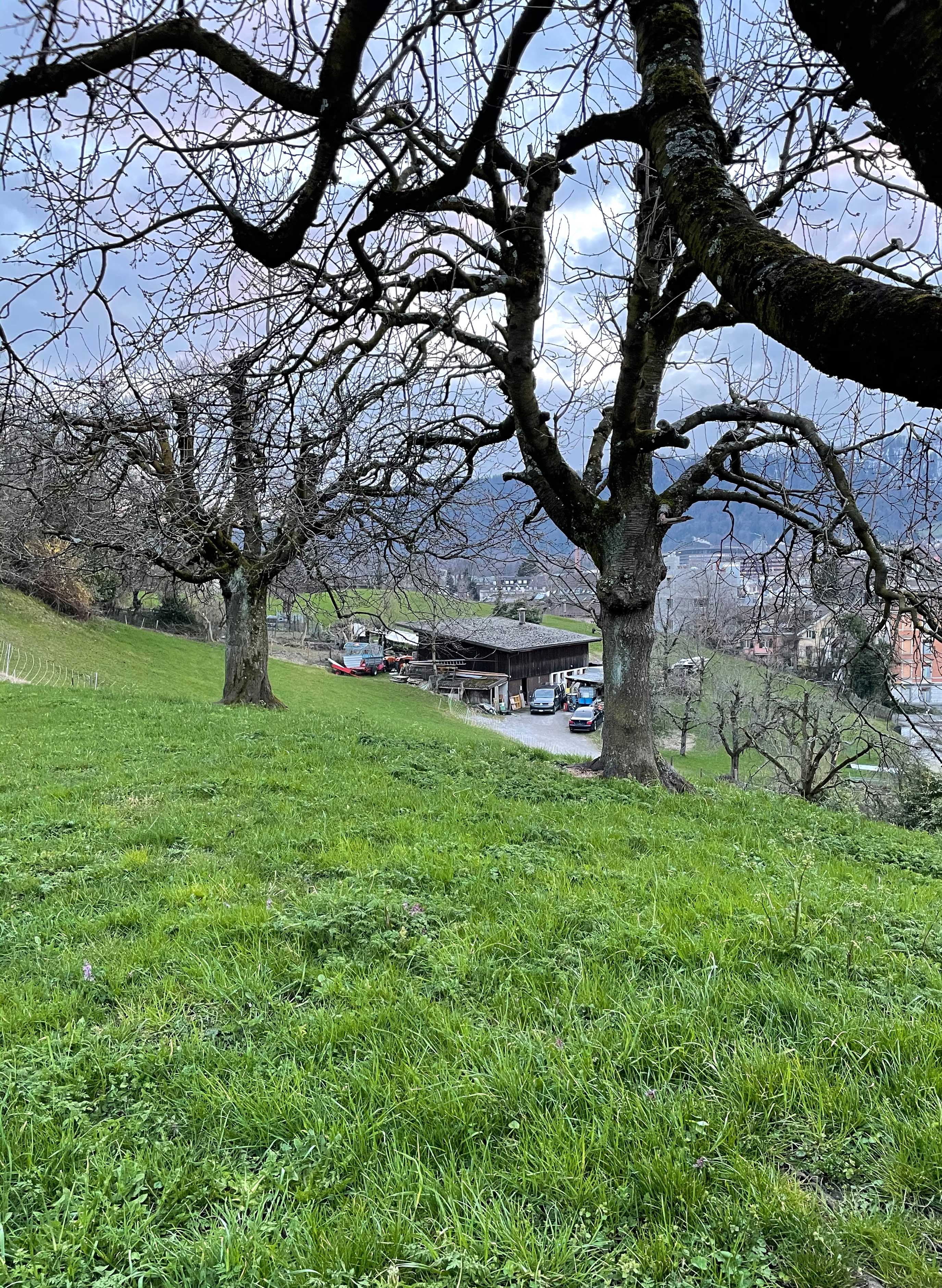Fragments of space:
Urban agriculture
«Municipal farm Juchhof - more than food production:
The Juchhof is run by Grün Stadt Zürich itself. The versatile farm is a training centre for future farmers. It cultivates the city vineyard at Chillesteig with its own winegrower and offers sponsorships for the vines. He produces delicious dried fruits from the yields of his own fruit trees. In addition, the Juchhof team maintains over 40 ha of ecological compensation areas and stream banks within the city.
Children from over a hundred school classes in the city of Zurich visit the farm school at the Juchhof every year.
Behind the scenes, the Juchhof contributes to the success of the popular Albisrieden livestock show every year.»
(1)
The city of Zurich owns around 66% of the agricultural land within its territory. Most of it is run by the Juchhof, that once used to be a highly efficient farm according to Bernhard Koch, head of the department for agriculture of Grünstadt Zürich. Within two years, the Juchhof has converted to organic farming. Before the adaptation, milk and pork were the most important products while today a variety of arable crops are produced. The City of Zurich has set itself the goal of producing organically on all of its own farmland with a focus on ecologically valuable habitats.
80% of the city's agricultural land is already farmed organically, and the trend is rising.
Today, the Juchhof is located in a rather strange urban situation next to the motorway, completely encapsulated by sport fields, close to family gardens and the post center. Its lands are dispersed and not easy to reach for the municipal workers. Today it is more than a productive farm, rather a place to learn and for the inhabitants of the city to get in contact with production. The old farm had to be replaced by a new building in the 80s and due to its innovative character the building by Willy E. Christen, Zweifel + Strickler + Partner gained high recognition. Today the Juchhof is facing transformation and parts of it might be destroyed to open up soil for cultivation. (2)
Also the vineyards of the city are being taken care of by the Juchhof, the vineyard im Bürgli where the Landolt Wein is produced is no exception. The wine is cultivated on the backside of a rather big enclosed Freihaltezone where a small sheep farmer still uses the land. The green space is private and not accessible to the public, but still a green «archipelago» within the city. With the growing pressure on land within the city also the pressure on these kind of spots are growing. Swisscanto is trying to develop the land strip following the street, within this procedure a building from the 80s, a garden center and parts of the green land would be destroyed. For now the project is stopped because of noise regulations. (3)
(1) - Juchhof, Stadt Zürich, https://www.stadt-zuerich.
ch/ted/de/index/gsz/landwirtschaft-in-zuerich/
gutsbetrieb-juchhof.html (visited 20.04.2021).
(2) - Christen, Willy E., Ein Gutsbetrieb als Modell, in:
Werk, Bauen + Wohnen 72 (1985).
(3) - Graber Pulver Architekten
images:
1,2,8,9 - BSV
3 - googlemaps
4,6 - Werk, Bauen + Wohnen, 1985
5,7 - Bildarchiv ETH Zurich
